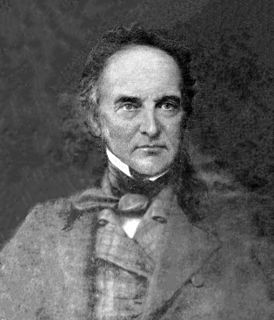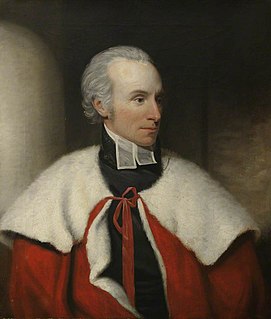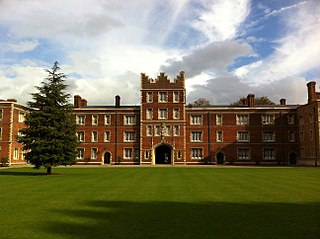
William Mure was a Scottish scholar and Conservative politician. He sat in the Parliament of the United Kingdom from 1846–55 as the Member of Parliament (MP) for Renfrewshire and was Laird of Caldwell in Ayrshire.

Sion College, in London, is an institution founded by Royal Charter in 1630 as a college, guild of parochial clergy and almshouse, under the 1623 will of Thomas White, vicar of St Dunstan's in the West.
Thomas Rennell (1787–1824) was an English theologian and author.
John Law DD (1745–1810) was an English mathematician and clergyman who began his career as a Fellow of Christ's College, Cambridge, and went on to become chaplain to the Lord Lieutenant of Ireland and Church of Ireland bishop of Clonfert and Kilmacduagh (1782–1787), Killala and Achonry (1787–1795), and finally of Elphin (1795–1810).

Charles Wellbeloved was an English Unitarian divine and archaeologist.
Thomas Pownall Boultbee, LL.D. (1818–1884), was an English clergyman.

John Edwards (1637–1716) was an English Calvinistic divine.
Thomas Edwards (1652–1721) was a Welsh divine and orientalist.
Thomas Kipling was a British churchman and academic.
Brampton Gurdon was an English clergyman and academic, Boyle lecturer in 1721.

Thomas Dunham Whitaker (1759–1821) was an English clergyman and topographer.
William French, D.D. (1786–1849) was master of Jesus College, Cambridge.

William Frere, was an English lawyer and academic, a law-serjeant and Master of Downing College, Cambridge.
Anthony Freston, né Brettingham (1757–1819) was an English Anglican clergyman.

Robert Masters (1713–1798) was an English clergyman and academic, known as the historian of Corpus Christi College, Cambridge.

The Very Rev. Edward Bickersteth (1814-1892) was an Anglican priest in the 19th century.
Arthur Browne was an Irish lawyer, academic, and politician.
Richard Turner was an English divine and author.
William Dickinson (1756–1822) was an English topographer and legal writer.

Philip Douglas, D.D. was a British priest and academic in the second half of the eighteenth century and the first decades of the 19th.
The public domain consists of all the creative work to which no exclusive intellectual property rights apply. Those rights may have expired, been forfeited, expressly waived, or may be inapplicable.

The Dictionary of National Biography (DNB) is a standard work of reference on notable figures from British history, published since 1885. The updated Oxford Dictionary of National Biography (ODNB) was published on 23 September 2004 in 60 volumes and online, with 50,113 biographical articles covering 54,922 lives.












